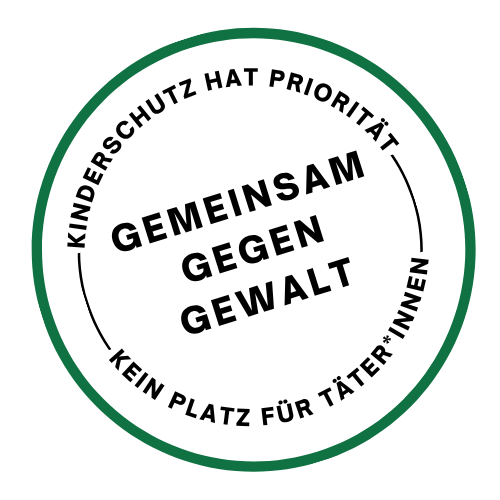Introduction video of EXIL e.V.
project 'FreiZeit für Flüchtlingskinder'
Introduction video of our project for the “Kinder-haben-Rechte-Preis” 2015
Who we are
‘FreiZeit für Flüchtlingskinder’ (FFF in short) is a group of people who are committed to helping children and young people with an escape history who live in the Bramsche-Hesepe Regional Reception Center.
On two weekends a month we organize various leisure activities: From artistic-creative handcraft lessons to musical or sport activities, we try to provide as wide a variety of leisure activities as possible. At regular preparatory meetings in a relaxed atmosphere, in addition to the regular activity afternoons, we also plan, among other things, encounter projects with schools or organize information and dialogue events on the topic of flight and asylum. We visit school classes, seminars and lectures at the university. In this way, we try to draw attention to the issue and encourage more people to get involved with refugees. We are not primarily a political initiative, but we interfere by trying to model anti-discriminatory solidarity and seek out people who otherwise live marginalized lifes.
With our project, we try to overcome the isolation of collective housing for refugees and to create a platform for the children and young people where they are perceived and supported as young people, regardless of their descent or legal residence status.
We work as a project of the Exil e. V. and are also supported by various organizations and sponsors. Especially the continuous financial support of the children’s charity “terre des hommes” should be mentioned in this context. As a student initiative supported by the AStA, we try to give students the opportunity to gain practical experience, to expand their organizational skills as well as their social and cultural competences. Involvement in FFF can also be credited to some degree programs – for example, as part of project work or internships.
Background
Every person who applies for asylum in Germany brings his or her own story with them, which may well include traumatic experiences in the country of origin or during the escape. We take this into account when planning the activity afternoons. Even when they arrive in Germany, refugees have to live in a tense situation and with uncertain prospects. Children in particular suffer from the restrictions of a life as a refugee in Germany. There is a lack of space for free development and opportunities for personal development support.
In addition, there are hardly any institutionalized opportunities to come into contact with people from the region. Thus, we strive to create spaces for encounters. We want to counteract prejudices in the long term and promote acceptance and solidarity. It is important to us to meet people - regardless of their residence status - and to create positive experiences together with them.
We feel connected to the guiding principle of the UN Convention on the Rights of the Child. This emphasizes the right of refugee children to the free practice of religion, the promotion of participation, opportunities for free development and participation in cultural and social life. We also insist on the right to privacy and intimacy, self-determined food intake, schooling, medical care and psychosocial support.
We draw attention to abuses and their consequences in asylum policy and show solidarity with refugees. We advocate and support political actions to improve the rights of refugees and carry out corresponding public relations work.
Join us!
history
The foundation for our project was laid back in 2003. Two committed elementary school teachers organized weekly play afternoons in the local community center in Hesepe in consultation with the deaconess at the time. A meeting place was created for refugee and local children from Hesepe. Due to the high demand of the offer, regular meetings were soon organized on weekends, now outside the community house.
The current structure, with regular preparatory meetings and planned organizations has been in place since about 2013.
Since 2014, our project has been receiving financial support from the charity organization Terre des hommes, so that some of the project staff can be increasingly active in the areas of organization, sustainability and public relations for a small fee. Nevertheless, our project still lives on voluntary commitment.
With the prize money of the ‘Kinder-haben-Rechte-Preis 2015’, we developed the current mission statement for our project in a process together with the Kinderschutzbund Niedersachsen. Also otherwise we finance our work through prize money, donations from private individuals or cooperation partners.


